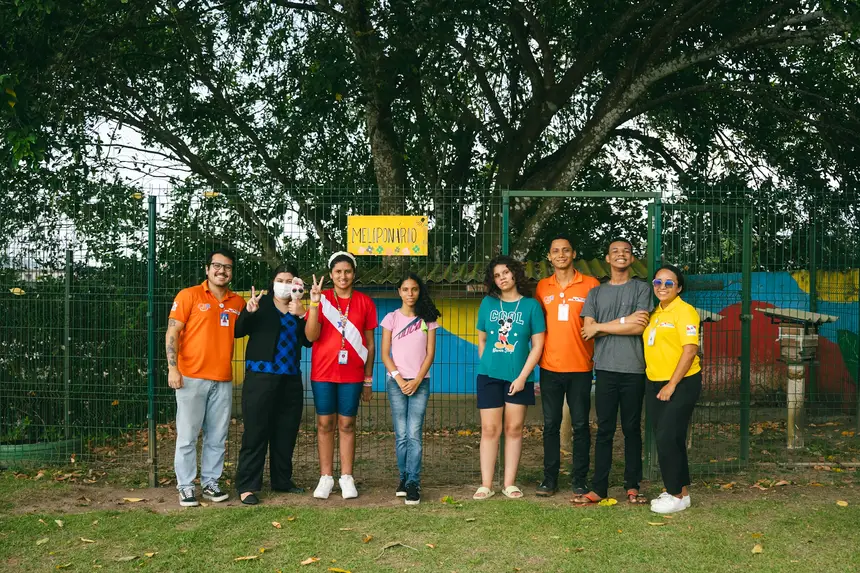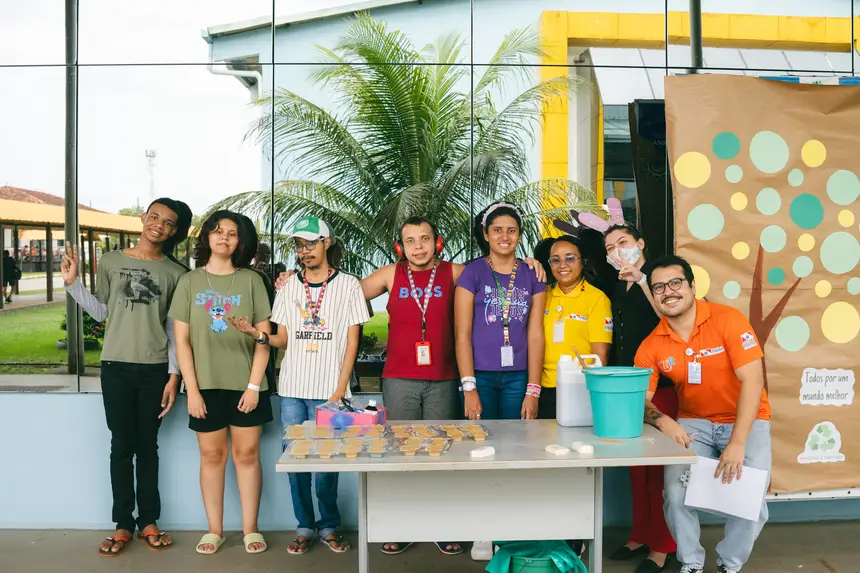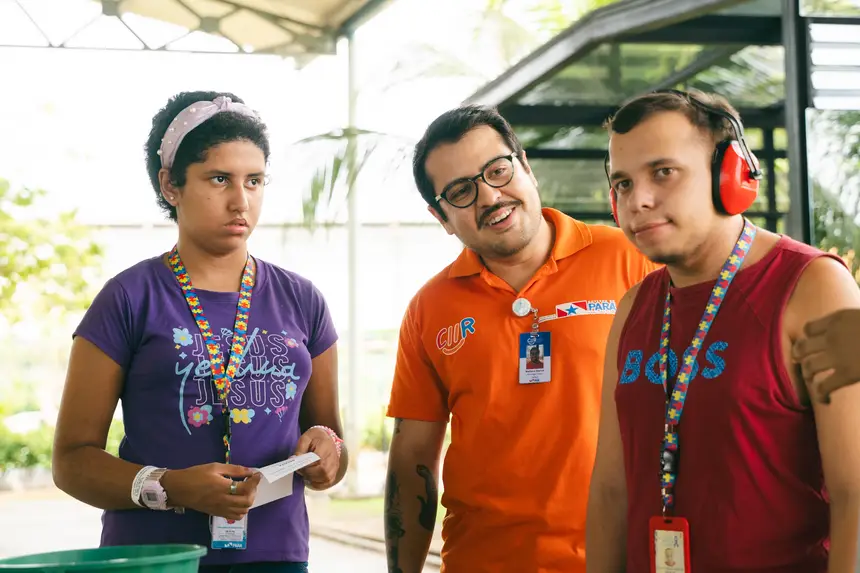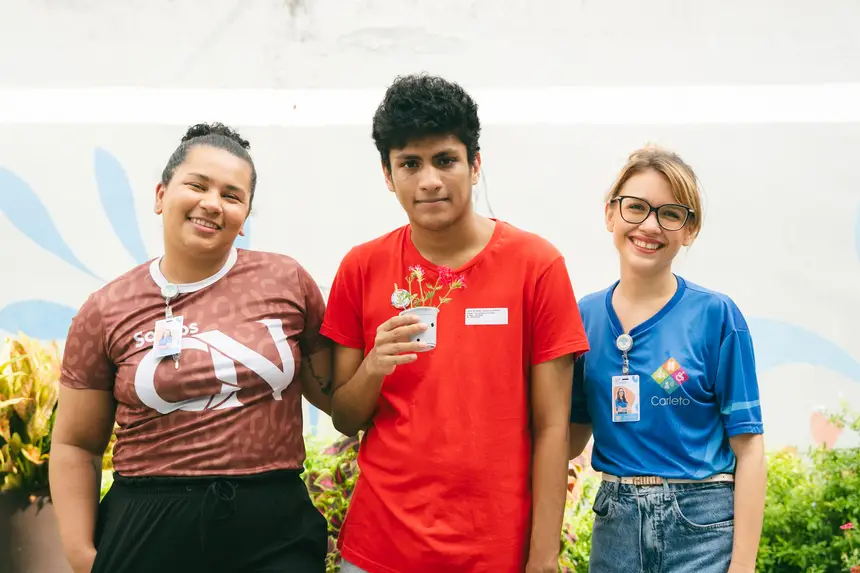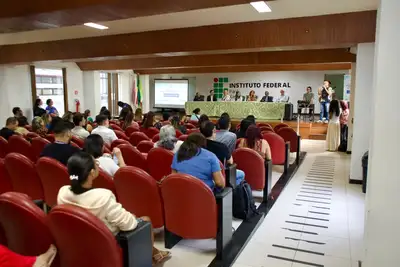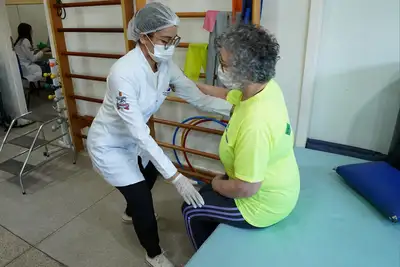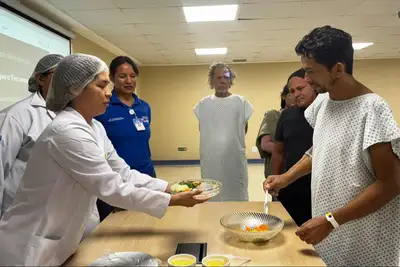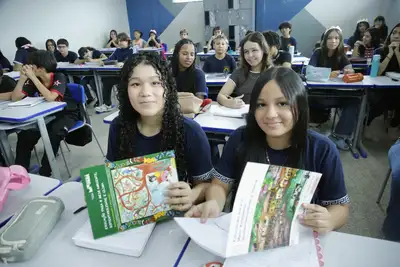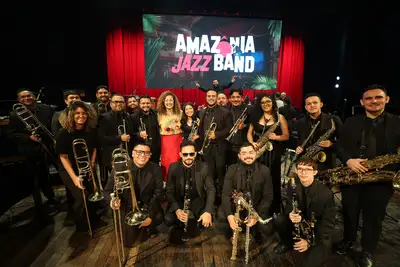Autistic youth from CIIR learn about sustainability through actions inspired by COP30
Social skills project encourages environmental awareness and empowerment of people with disabilities
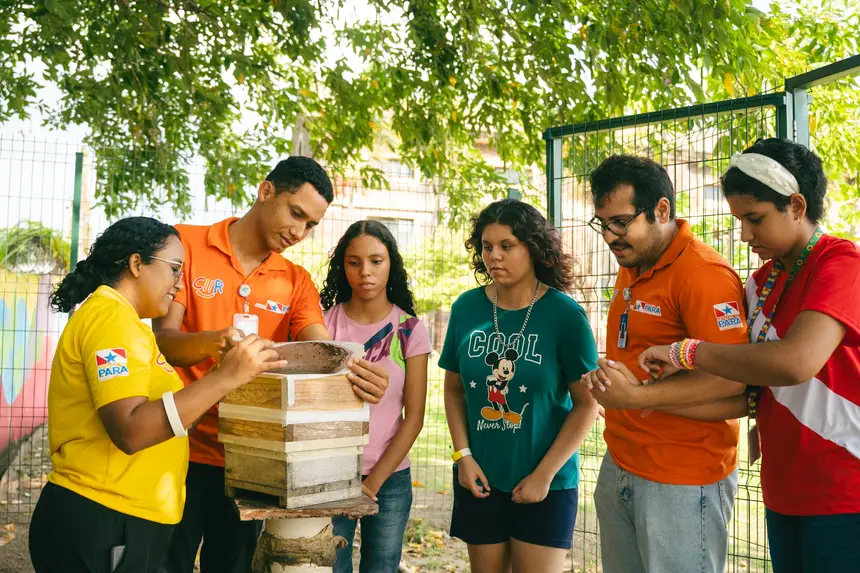
At the Integrated Center for Inclusion and Rehabilitation (CIIR), care goes far beyond rehabilitation. It also translates into attitudes that awaken awareness, autonomy, and empathy. With this purpose, the group of autistic youth attended by psychologist Matheus Barros chose, as the theme for their social skills therapies over the past few months, an urgent and inspiring topic: sustainability, referencing COP30, the global conference on climate change taking place in Belém.
The project proposes an immersion that combines learning and collective responsibility. “More than encouraging pro-social behaviors, we seek to include participants in discussions about the environment and sustainability,” explains Matheus. “People with disabilities are also affected by climate change and need to be included in these conversations. Here, they learn, reflect, and become multipliers of these ideas.”
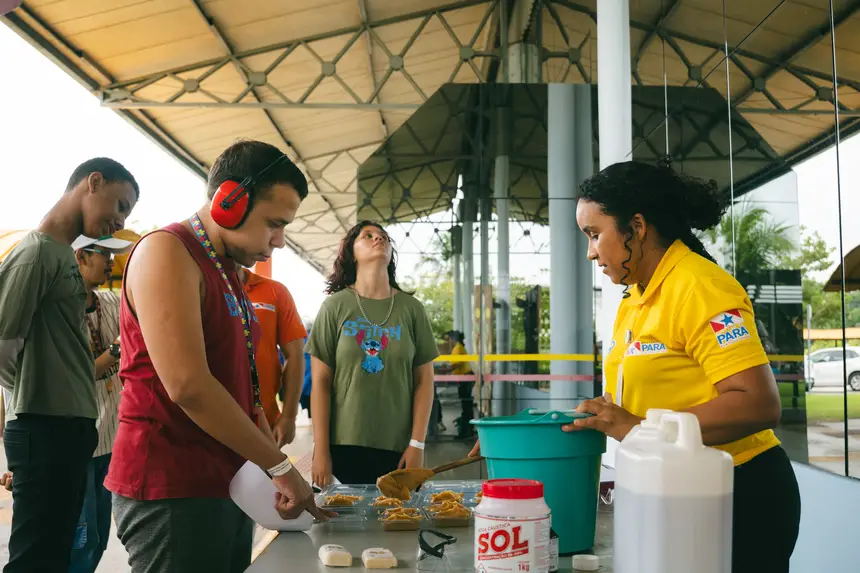
The group sessions combine theory and practice. After initial meetings focused on understanding environmental concepts, the youth immersed themselves in a series of educational activities, such as selective waste collection, a soap workshop with recycled oil, planting and adopting seedlings, as well as debates on preservation, deforestation, and conscious consumption. Each dynamic was designed to strengthen bonds, stimulate autonomy, and cultivate a sense of belonging to the world around them.
Connection with nature - Among the participants, enthusiasm is evident. Klarisse Isabele Correia, 18, who has been attending CIIR since 2019, shares that the activities further reinforced her connection with the environment. “I am very connected to nature. I think it’s important for us to take care of it, so we don’t lose anything in the future,” she shares.
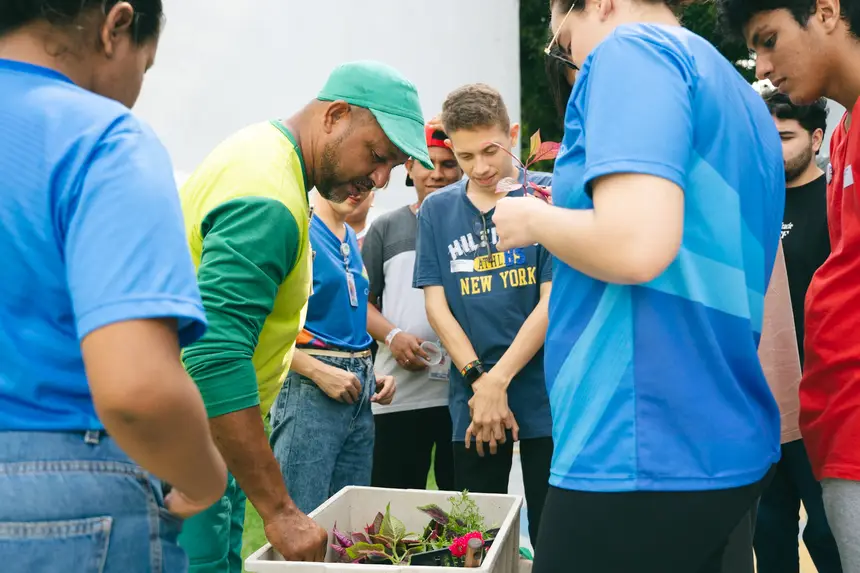
Another participant, Gabriel Mineiro, 23, dreams of a future surrounded by life and greenery. “My dream is to have a large piece of land, with plenty of space to raise animals. That’s why I think it’s so important to preserve the environment. We have to take care not to destroy what is beautiful,” says the user who has also been attending CIIR since 2019.
For Matheus, each step of the group represents more than a technical learning experience: it is an exercise in citizenship and sensitivity. “They are understanding that small actions have a big impact. This makes them central to these discussions and allows them to become disseminators of these words, these ideas of sustainability and environmental preservation,” reinforces the psychologist.
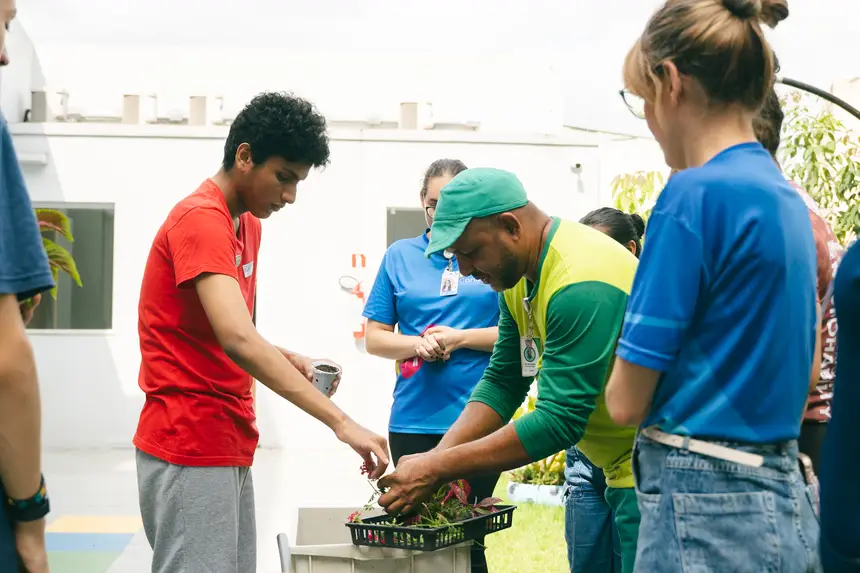
Other environments - The realization of COP30 also inspired the professionals at the Specialized Center for Autism Spectrum Disorder (Cetea), a unit linked to CIIR, which brought the same theme into the therapeutic environment. There, the team transformed the institution's green space into a setting for learning and coexistence with the environment.
Occupational therapist Alanna Gomes explains that the group's proposal was to unite theory and practice in a collective planting activity carried out with the support of the center's gardener. “We want to move away from the traditional therapy environment and take care outside the room. The activities take place in the garden, where users learn about plant cultivation, listening and exchanging experiences. Since COP is happening in Belém and is a historic event, it also inspires us to bring these debates so that they feel part of this global discussion and can take this knowledge to other environments,” she emphasized.
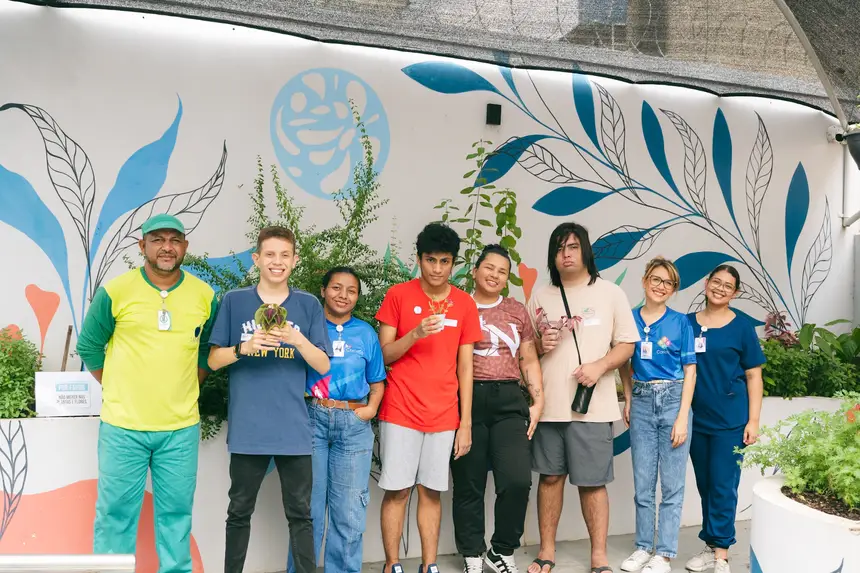
Psychologist Raissa Campos adds that the social skills group at Cetea always seeks to align practices with current themes. “The idea is to make users feel included in what is happening in the world. So, since we are in the COP period, we brought this climate discussion, talking about the importance of preserving the environment, so they could also express themselves in various ways, with writing, drawings, and, mainly, with planting, which is a symbolic gesture of commitment to the future,” detailed the professional.
One of the participants, Christian Rafael Carvalho, 19, summed up the group's sentiment in a few words: “I thought the activity was cool because we need to take care of nature for future generations.”
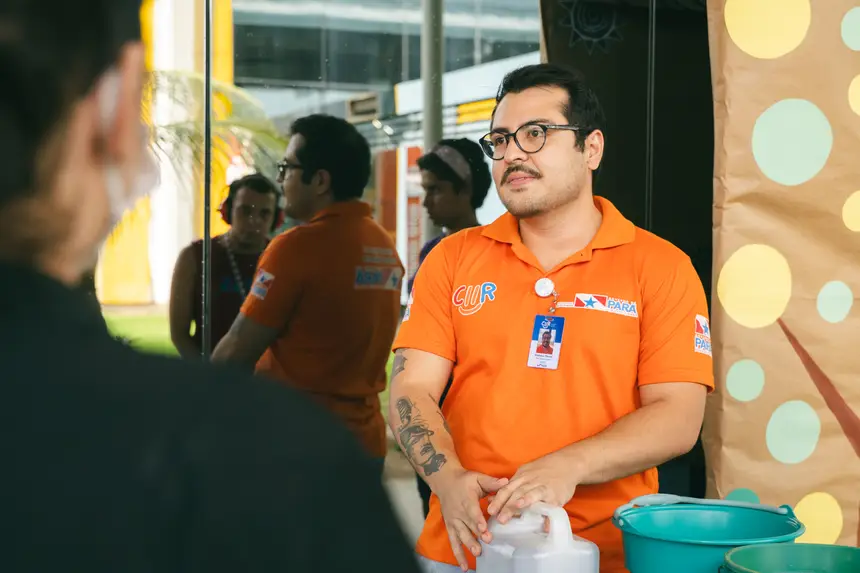
The initiatives of CIIR and Cetea show that educating, caring, and including are parts of the same path: the one where learning flourishes alongside respect for life in all its forms. In each gesture, a bit of what CIIR believes sprouts, that caring for people also means caring for the planet.
Reference - CIIR is a reference in Pará for medium and high complexity assistance to people with visual, physical, auditory, and intellectual disabilities. Users can access the Center's services through referrals from health units, received by the Regulation Center of each municipality, which in turn forwards to State Regulation. The request will be analyzed according to the user's profile by the State Regulation System (SER).
Service: The Integrated Center for Inclusion and Rehabilitation is an agency of the Government of Pará managed by the National Institute for Social and Human Development (INDSH), in partnership with the State Department of Public Health (Sespa). It operates at Rodovia Arthur Bernardes nº 1000, Val-de-Cães neighborhood, in Belém. Cetea operates at Presidente Pernambuco street, nº 489, Batista Campos neighborhood, also in the capital of Pará.



